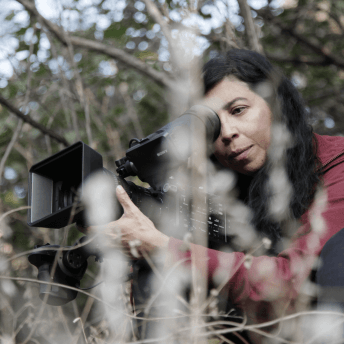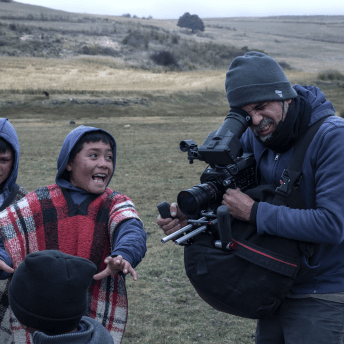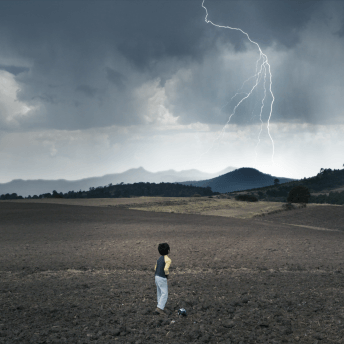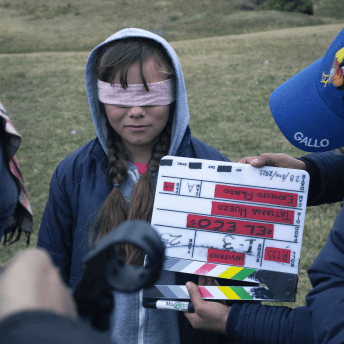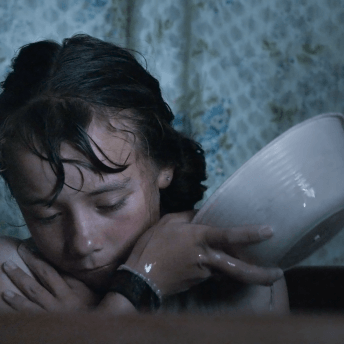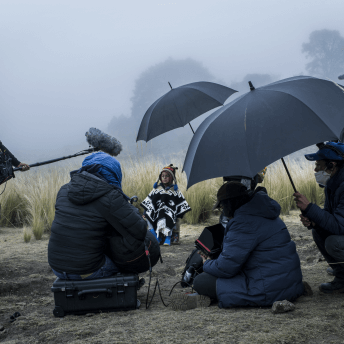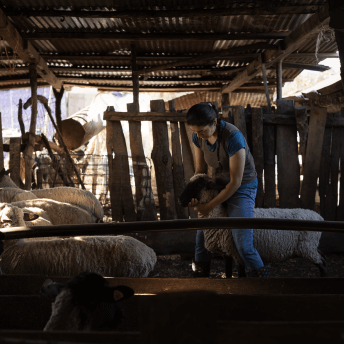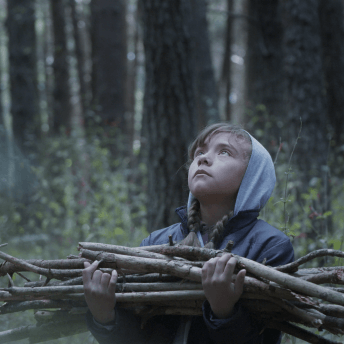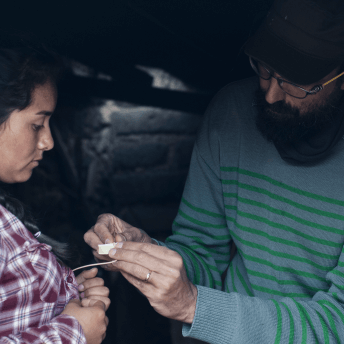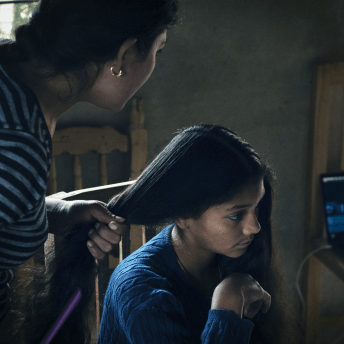Film phase:Completed
SYNOPSIS
In the remote village of El Eco that exists outside of time, the children care for the sheep and their elders. While the frost and drought punish the land, they learn to understand death, illness and love with each act, word and silence of their parents. A story about the echo of what clings to the soul, about the certainty of shelter provided by those around us, about rebellion and vertigo in the face of life. About growing up.
El Eco/The Echo was supported through Tatiana Huezo’s 2021 Chicken & Egg Award.
ABOUT THE DIRECTOR
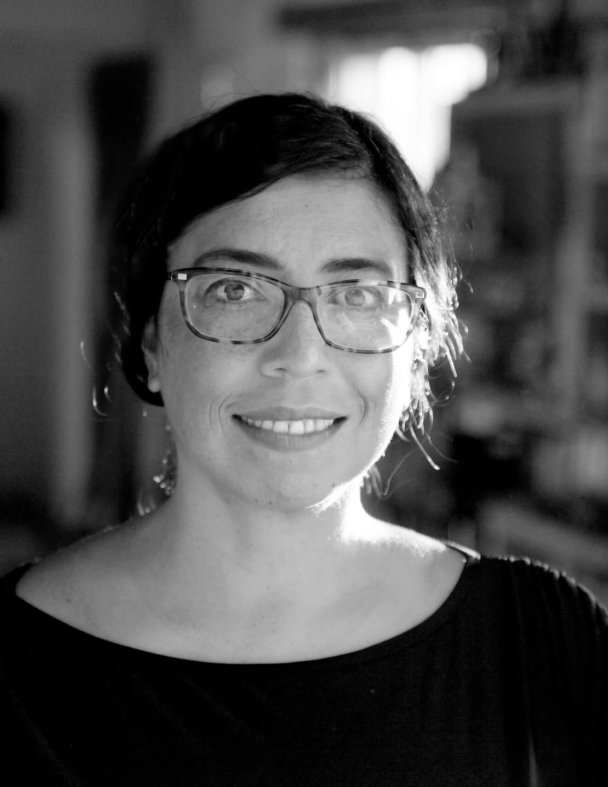 Mexican-Salvadoran filmmaker Tatiana Huezo (she/her) gained an international reputation with her feature debut, The Tiniest Place (2011), which screened at more than 80 international festivals.
Mexican-Salvadoran filmmaker Tatiana Huezo (she/her) gained an international reputation with her feature debut, The Tiniest Place (2011), which screened at more than 80 international festivals.
Her work has been widely recognized around the world and acknowledged by the Mexican Academy of Cinematographic Arts and Sciences with eight Ariel awards; among them Best Documentary and Best Director for Tempestad, which premiered in the 66th Berlinale Forum; as well as Best Film for Prayers for the Stolen, which premiered in Un Certain Regard at Cannes Film Festival, where it received a special mention from the jury.
Tempestad and Prayers for the Stolen were both selected by the Mexican Academy to represent Mexico in the Academy Awards and the Goya Awards; for the latter they received the nomination in the category of Best Iberoamerican film in 2018 and 2022 respectively.
Her most recent film, Prayers for the Stolen, has had a successful festival run and was nominated for the 37th Annual Film Independent Spirit Awards as well as the DGA Awards in the category of best director. It was also shortlisted for Best International Feature Film at the Academy Awards in 2021.
Tatiana graduated from the Centro de Capacitación Cinematográfica (CCC) and has a Master Degree in Creative Documentary from the Universidad Pompeu Fabra in Barcelona.
She has given conferences and taught classes in academic spaces like La Escuela de Cine de la Comunidad in Madrid, École cantonale d’art de Lausanne, University of California Santa Barbara, The Green House in Israel as well as the CCC, among others. Her academic activities also include editing the book “El Viaje, rutas y caminos andados para llegar a otro planeta” produced by the “CCC” and DocumentaMadrid.
ABOUT THE PRODUCER
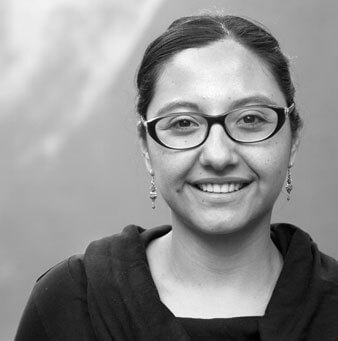 Dalia Reyes (she/her) is an Ariel-nominated director and producer, and the founder of Chulada Films, a production house specializing in nonfiction films based in Mexico. Her latest production, El Eco by Tatiana Huezo (2023), premiered in the Encounters section of the Berlin International Film Festival, and received a grant from the Mexican National Endowment for Culture and Arts’ Program of Cinema Development (FOCINE) as well as the IDFA Bertha Fund.
Dalia Reyes (she/her) is an Ariel-nominated director and producer, and the founder of Chulada Films, a production house specializing in nonfiction films based in Mexico. Her latest production, El Eco by Tatiana Huezo (2023), premiered in the Encounters section of the Berlin International Film Festival, and received a grant from the Mexican National Endowment for Culture and Arts’ Program of Cinema Development (FOCINE) as well as the IDFA Bertha Fund.
Her first film, Baño de Vida (2016), was screened at over twenty international festivals, including the Guadalajara International Film Festival (FICG), International Film Festival of Asian-Pacific Countries in Vladivostok, and CinéLatino’s Toulouse Latin America Film Festival. Her second film, Ráfagas Serranas, was shot in seven communities in the Sierra Norte of Oaxaca, Mexico.
Reyes has produced several films, including Cenizas (2011) and La Madre (2012) by Ernesto Martínez Bucio, Mi No Lugar (2022) by Isis Ahumada, and Río de Sapos (2023) by Juan Carlos Núñez Chavarría. Mi No Lugar received the Mexican National Endowment for Culture and Arts’ Stimulus for Audiovisual Creation in Mexico and Central America for Indigenous Communities and Afrodescendants, known as ECAMC.
Her latest work as a screenwriter, A Thousand Capas, debuted at Critics’ Week in Cannes. In 2021, she was nominated for the esteemed Ariel Award for best production design for Fernanda Valadez’s debut feature, Sin Señas Particulares.
Since 2013, Reyes has worked with Territories of Culture for Equity and Consorcio Oaxaca, directing each of their documentary projects. She earned a Bachelor’s degree in Communication Studies from the Autonomous National University of Mexico (UNAM) and a Master’s degree in Documentary and Society from the University of Barcelona.

